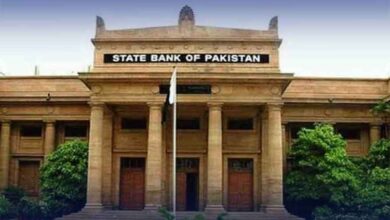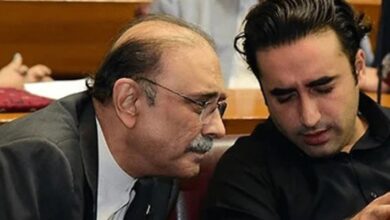ISLAMABAD: Amid continued financial strain, state-owned enterprises (SOEs) in Pakistan have recorded staggering losses of nearly Rs342 billion in just six months, pushing their total accumulated losses and unfunded pension liabilities beyond Rs7.5 trillion. This figure is almost triple the country’s defence budget of Rs2.55 trillion for FY2025-26 and over seven times the Public Sector Development Programme (PSDP) allocation of Rs1 trillion for the same period.
The Ministry of Finance presented these alarming figures to the Cabinet Committee on State-Owned Enterprises (CCoSOEs) on Friday, revealing that SOE losses now total over Rs5.8 trillion, approximately one-third of the Rs17.5 trillion federal budget for the upcoming fiscal year.
Finance Minister Muhammad Aurangzeb, who chaired the meeting, was briefed by the Finance Division’s Central Monitoring Unit on the performance of SOEs from July to December 2024. The report painted a grim picture: losses of Rs342 billion in just half a year, continued deterioration in operations, and systemic financial inefficiencies.
Despite repeated increases in electricity and gas tariffs over the last three years, circular debt in the oil, gas, and power sectors has ballooned to over Rs4.9 trillion, nearly double the defence budget — severely undermining cash flows and asset values.
Government support to SOEs in the form of subsidies, grants, loans, and other funding — surpassed Rs600 billion in just six months, equating to nearly 10% of total government revenue.
Meanwhile, unfunded pension liabilities, particularly within power distribution companies (Discos) and Pakistan Railways, are estimated at Rs1.7 trillion and are not reflected in official government accounts. Additionally, government guarantees have reached Rs2.2 trillion, with debt rollovers and financial restructuring costs further squeezing fiscal space.
The committee also flagged serious governance issues, such as poor transparency in ownership disclosures, weak compliance with IFRS standards, and a general lack of strategic direction and operational efficiency. These were identified as critical areas requiring immediate attention.
A statement following the meeting highlighted that the government is facing daily losses averaging Rs1.9 billion. Finance Minister Aurangzeb criticized the inefficiencies in Disco management, delays in grid upgrades by NTDC, and rising pension costs, warning that these issues are eroding fiscal room and undermining investor confidence.
He emphasised the urgent need for reforms in the energy sector, especially given the unsustainable level of circular debt, and reaffirmed the government’s resolve to improve transparency, financial discipline, and accountability across all SOEs.
The minister also instructed government-nominated board directors to take a more proactive role in improving SOE performance, ensuring they fulfill their oversight duties. Notably, each SOE board includes at least one senior Finance Ministry official, in addition to representatives from relevant ministries, all of whom receive generous compensation yet these entities continue to bleed financially.
Aurangzeb stressed the importance of aligning SOE business plans with national priorities, addressing operational hurdles collaboratively, and ensuring timely decisions.
The committee also approved several key appointments: new chairpersons for Quetta Electric Supply Company and Gujranwala Electric Power Company, as well as the formation of the Board of Directors for the Independent System Market Operator (ISMO) and a new independent director for GENCO Holding Company Ltd (GHCL).
Further approvals included the nomination of independent directors for Multan Electric Power Company (MEPCO) and Power Information Technology Company (PITC), and the formation of a board for the Energy Infrastructure Development and Management Company (EIDMC).
Lastly, the committee endorsed a proposal from the Ministry of Railways to dissolve three subsidiaries including RAILCOP, PRACS, and PRFTC as part of streamlining efforts.







